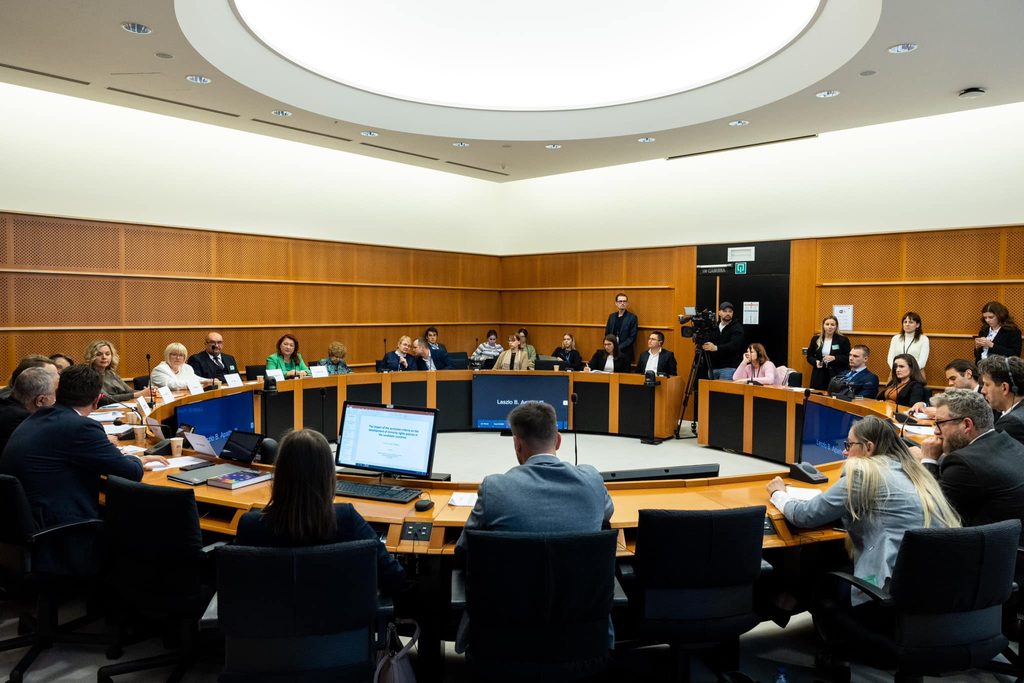The political criteria for joining the EU require candidate countries to have achieved the stability of institutions guaranteeing democracy, the rule of law, human rights and respect for and protection of minorities.
The accession criteria were established by the Copenhagen European Council in 1993 and have been guiding the enlargement process since then and the acceptance of candidate countries into the EU. But the issue of minority rights is not explicitly covered by EU law (the acquis) which candidate countries have to transpose and implement.
Instead, the EU are relying on two conventions adopted by the Council of Europe. One is the Framework Convention for the Protection of National Minorities, the other one The European Charter for Regional or Minority rights. In the past, the EU did not really push for their implementation by new member states as the issue was controversial among the old member states of which not all had ratified them.
In a key note speech last week at a conference arranged by the European Parliament about minority rights in the EU enlargement process, Oliver Várhelyi, the European Commissioner for Neighbourhood and Enlargement, announced a policy change which might affect among others Ukraine’s application for EU membership.
“We are united in diversity not only when it comes to the different nations of Europe, different Member States of Europe, but we are also united in diversity when it comes to the minorities of Europe,” he said “The European culture is rich because not only of its Member States, but also because of the many minorities that we have in Europe and also around the European Union.”
Article 2 of the treaty of the EU does include “the rights of persons belonging to minorities”, he recalled, as a common value “in a society in which pluralism, non-discrimination, tolerance, justice, solidarity and equality between women and men prevail”. This is not only a principle that the EU needs to respect and enforce, but it also has to be translated into legislation by new member states.
The principle of non-discrimination is part of the Charter of Fundamental Rights of the European Union and includes the grounds of ethnic origin on being a member of any national minority or religious minority, he stressed. The principle of equality is also the basis for two EU directives, the Race Equality Directive and Employment Equality Directive.
He referred to different measures taken in recent years by the EU with regard to both member states and candidate countries, such as the adoption of the Anti-racism Action Plan and the Strategy on combating antisemitism and fostering Jewish life.
“The first community we need to talk about is the Roma community,” the Commissioner said, referring to the European Roma Strategic Framework. “The Roma community is the largest ethnic minority, with around 4 million people living in the Western Balkans and Türkiye, in Ukraine, the Republic of Moldova, and Georgia, and within the EU”. In fact, an estimated number of 10-12 million Roma live in Europe.
Minority rights in the enlargement process
As regards the candidate countries, their compliance with the requirement is “part and parcel of the negotiations in the Judiciary and Fundamental Rights chapter of our negotiations,” Commissioner Várhelyi said, and it is monitored by the European Commission. The rights are not only individual rights but also to some extent collective rights.
“In analysing the progress, we are looking at all the different aspects: self-identification, the education system with the use of minority languages, the access to media and religious services, or access to religious services in minority languages, representation in the public administration. So, all the aspects of the Framework Convention are fully monitored by the Commission.”
The more the accession process advances, the more the candidate country will be scrutinized, he explained, referring to the enlargement package in Autumn. This year will be the first time the Commission will deliver progress reports for 10 countries, six in the Western Balkans and the three new accession countries, Ukraine, Moldova and Georgia.
He took the opportunity to remind the accession countries about the minority issues they need to pay attention to. In Western Balkans, “as an aftermath of the Balkan wars, difficult regional cooperations, and the protection of rights of people belonging to minorities is one of the key elements on which the stability and the multi-ethnic nature of the region are to be founded on.”
The Commission has also been engaging directly with the Ukrainian authorities and the minorities in Ukraine. It is a priority to help Ukraine but also to help the minorities there affected by Russia’s war. The Commissioner referred to the reform process which started before the war but also highlighted outstanding issues to resolve relating to education and the use of minority languages.
Currently, the Commission is waiting for a legal opinion to be delivered by the Venice Commission, an advisory body of the Council of Europe. “Solve this issue with minorities,” he called on Ukraine. “As long as the minorities are happy in the country, we can be sure that the right solution is found.”
He believes that “the maturity of any democracy is also demonstrated by the level of cooperation and happiness of the minority . . . the best ambassadors of any country, any candidate countries' membership, are their minorities.” This hardly means that he expects the Russian speaking minority in the Donbas region which welcomed the Russian army will lobby for Ukraine’s EU membership.
M. Apelblat
The Brussels Times

